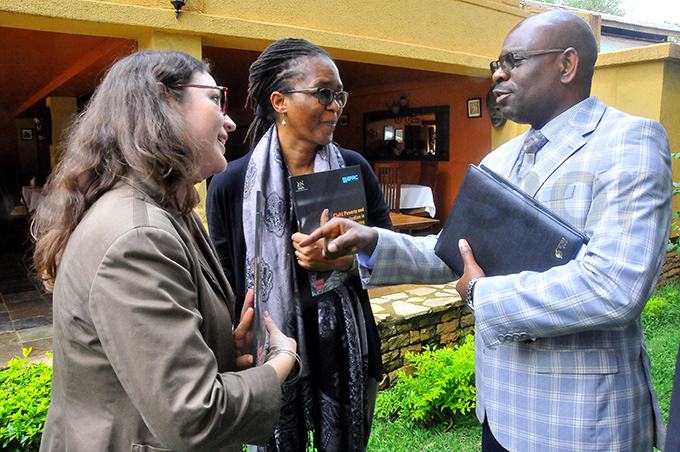Study finds conditions for refugee children deplorable
Refugee children according to the findings tend to be more deprived than the host
Refugee or not, children in refugee hosting communities have been found to be experiencing high levels of deprivations of essential items.
A study conducted by the Economic Policy Research Centre and Cardiff University with funding from UNICEF indicates figures of up to 90% of children not being able to access particular items perceived to be essential.
Titled "Child Poverty and Deprivation in Refugee-Hosting Areas; evidence from Uganda", the study is the study is an assessment of the situation and vulnerabilities of refugees in Uganda both in the rural and urban settings.
The finding for instance indicate that on such variables as own blanket, 70% of refugee children against 61% of host children were deprived, 84% of refugee against 66% of host children never have three meals a day, 51% of refugee against 32% of host children had no toiletries to wash every day and 86% of refugee against 54% of host children never received a gift at least once a year or on special occasions.
Refugee children according to the findings tend to be more deprived than the host. But over time, the deprivation tends to be leveled for both communities generally because, according to the study, the deprivation rates are already high among host communities.
David Katungi, the manager local government development planning at the National Planning Authority, said that refugee influx has come with a number of challenges which were otherwise not envisaged in the different national and local government development plans. "We need to move from humanitarian to self-reliant transitions but this requires capacity building at both sectoral and local government levels," he said.
 (L-R) UNICEF's Nathalie Meyer, Boiketetho Munima and National Planning Authority's David Katungungi at the symposium. Photo by Wilfred Sanya
(L-R) UNICEF's Nathalie Meyer, Boiketetho Munima and National Planning Authority's David Katungungi at the symposium. Photo by Wilfred Sanya
Data and research according to Katungi is critical in mapping interventions in refugee hosting communities. This study therefore he argues provides a benchmark on which policies and other planning processes can be hinged by the different stakeholders.
As argued by the participants during the launch of the report in Kampala today, there is need for an integrated approach in refugee response to avert disparities especially in social service delivery.
It was noted that there were cases where refugees' levels of deprivation were found to decline while the host communities remained vulnerable. The trend according to experts may become a recipe for conflict.
Speaking on behalf of the Country representative, UNICEF's Noreen Prendiville, highlighted that there is need to go beyond emergency response to build the systems and capacities of all social services in refugee hosting districts.
"The study represents an important milestone in our understanding of child poverty and deprivation in refugee hosting areas across Uganda. The study now compels us to comprehensively strengthen social services to reduce the child poverty and deprivations that tens of thousands of children in Uganda's refugee hosting districts are experiencing," she said.
Uganda ranks among the top five refugee hosting countries globally and in 2016 became the country with the most refugees in sub Saharan African, between December 2016 and May 2017, largely as a result of the crisis in South Sudan and Democratic Republic of Congo(DRC).
Currently, the refugee population is estimated at more than 1.38m. Between January and February 2018, more than 40,000 refugees had already entered Uganda from the DRC against a projection of 60,000 in Uganda's integrated refugee response plan for 2018.